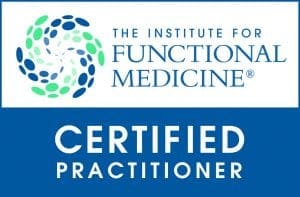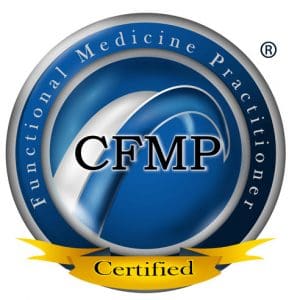Licorice is a widely researched root; it provides health benefits, and these have been applied in herbal medicine for thousands of years. Its main active ingredient is glycyrrhizin, it exerts a cortisone-like effect, and it’s 50 times sweeter than sugar. In ancient years licorice was used to treat coughs, reduce intestinal and gastric ulcers. Today licorice is used against liver toxicity.
I fact, licorice medicinal use has been reported in texts such as Assyrian Herbal (2000 BC) and Eber Papyrus (1600 BC). In traditional medicine, licorices has been used in the treatment against kidney diseases, flatulence, sexual debility, fluid retention, Addison’s disease, pancreatic disorders, mouth ulcers, allergies, viral infections, and recently COVID-19.
The real licorice
You might associate the work licorice with candy. I guess that you can also reme
Licorice is a widely researched root; it provides health benefits, and these have been applied in herbal medicine for thousands of years. Its main active ingredient is glycyrrhizin, it exerts a cortisone-like effect, and it’s 50 times sweeter than sugar. In ancient years licorice was used to treat coughs, reduce intestinal and gastric ulcers. Today licorice is used against liver toxicity.
I fact, licorice medicinal use has been reported in texts such as Assyrian Herbal (2000 BC) and Eber Papyrus (1600 BC). In traditional medicine, licorices has been used in the treatment against kidney diseases, flatulence, sexual debility, fluid retention, Addison’s disease, pancreatic disorders, mouth ulcers, allergies, viral infections, and recently COVID-19.
Table of Contents
The real licorice
You might associate the work licorice with candy. I guess that you can also remember the taste of this type of candy from 20 years ago. It was different from what it is today. In fact, licorice or liquorice derives from Old Greek glykyrrhiza, glykys means “sweet,†and rhiza is “root.†Commercial licorice candy is made from corn syrup, wheat flour, cornstarch, and licorice root is no longer part of its constituents. Therefore, commercial licorice candy should not be used as a treatment.
Licorice plant
Licorice comes from the genus Glycyrrhiza, which comes from the family Leguminosae. Nevertheless, the genus Glycyrrhiza has around 30 different species. This is why the clinical applications of Licorice and its action may vary. The plant from which licorice comes from can grow 1-2m tall. Its leaves are oval-shaped and comprised of four to eight leaflets. Licorice roots are dark reddish, while the insides are bright yellow, they are described as fibrous, soft, and flexible. It is believed that licorice might have originated in Iraq. However, Glycyrrhiza glabra species have expanded to Spain, Italy, Turkey, Central Asia, and China’s western part. Meanwhile, Glycyrrhiza uralensis is distributed from Central Asia to Mongolia and China. Besides, different Glycyrrhiza studies are currently cultivated worldwide.
Clinical applications
The different species of Glycyrrhiza have a broad range of biological reactions. In fact, these reactions depend on the specific species applied to each study. The different pharmacological applications include anti glycemic effects, cholesterol reduction, anxiolytic, antiviral, antimicrobial, anti-inflammatory, and hepatoprotective.
G. glabra and G. uralensis antimicrobial effects:
Antimicrobial effects of plants are attributed to their alkaloids, saponins, flavonoids, glycosides, and phenol content. Consequently, different authors have reported antimicrobial activity of G. glabra against Bacillus subtilis, Staphylococcus aureus, Pseudomonas aeruginosa, Escherichia coli, and one fungal strain, Candida albicans. Adding to these effects, G. glabra can act against Mycobacterium tuberculosis. These beneficial effects are linked to G. glabra’s ethanolic extract.
Besides, antibacterial action against Bacillus subtilis, Staphylococcus aureus, Escherichia coli, Staphylococcus epidermidis, and Pseudomonas aeruginosa has been reported concerning ethanol, acetone, and chloroform extracts of G. glabra.
Â
Antiviral effects
Intervention with licorice against several viruses was used in ancient times; it was formerly used as a potential therapeutic agent in hepatitis B and C. Besides this, the glycyrrhizin and glycyrrhizic acid components in licorices have clinical applications in treating the human immunodeficiency virus (HIV). Also, derivates from glycyrrhizin can reduce the hepatocellular damage associated with hepatitis A and C and protect against SARS-related coronavirus.
Despite this, the bioactive compound 18β-Glycyrrhetinic acid has exerted positive effects on vulvovaginal candidiasis. In fact, the underlying action depends on the inhibition of viral membrane binding and signal transduction mechanisms.
 Anti-inflammatory effects
The licorice effects are similar to the action of hydrocortisone. Indeed, the effects of glycyrol (benzofuran coumarin) isolated from G. uralensis has proven to have potent anti-inflammatory effects that could potentially treat allergies and other inflammatory conditions. Besides, glycyrrhizic acid, glycyrrhizic acid, clabridin, and licochalcone have attributed anti-inflammatory effects that can be applied in inflammation-induced edema with positive outcomes.
Licorice has been found to reduce the progress of inflammation by inhibiting Tumor necrosis factor (TNF-a). Indeed, TNF-a’s upregulation can induce the pro-inflammatory mediator such as IL-1, IL-6, IL-8, and granulocyte-macrophage colony-simulating factor, contributing to an increased inflammatory response. However, licorice and G. glabra extracts have been used in ulcerative colitis studies, showing a potent action against TNF-a-induced pro-inflammatory cascade reactions.
Bodyweight
Besides, GLD an anti-inflammatory compound found in licorice, and its supplementation has been linked to loss of body weight, attenuated mortality, and overall promotion of gut health. However, licorice supplementation should be followed closely since it has multiple interactions with different drugs. Also, a complete body composition assessment should be part of the treatment. Read more below:
Licorice and ROS scavenging
Several licorice components could potentially facilitate the inhibition of ROS-induced hepatic fibrosis. In fact, licorice’s metabolites, polyphenols, and flavonoids can scavenge ROS as well as induce anti-inflammatory relief. The licorice’s ROS scavenging properties show inhibition of the production of free radicals in the LPS-treated Raw264.7 macrophages model. Also, this same positive result was shown in reduced concentrations of prostaglandins.
Antioxidant bioactive compounds in licorice |
|
| 18β-GA | LCA |
| LCB | LCC |
| ISL | EC |
| GLD | DGC |
| 18β-GC |  |
The application of licorice as a potential treatment for multiple conditions was introduced in ancient times. Also, the high concentration and variety of phenolic compounds, the different species of the Glycyrrhiza plant can partially explain why Licorice has so many applications. Furthermore, it is safe to mention that it is the most studied plant and has such a rich history.
Nowadays, technology has been able to link the benefits of licorice, its history, and applications in Traditional Chinese Medicine with the metabolic pathways that are suppressed by its presence. These findings place licorice as an alternative treatment for inflammation-induced conditions, and for acute conditions. – Ana Paola RodrÃguez Arciniega. Master in Clinical Nutrition
References
Â
Yang, Rui et al. “The anti-inflammatory activity of licorice, a widely used Chinese herb.â€Â Pharmaceutical biology vol. 55,1 (2017): 5-18. doi:10.1080/13880209.2016.1225775
Â
Mamedov N.A., Egamberdieva D. Phytochemical Constituents and Pharmacological Effects of Licorice: A Review. In: Ozturk M., Hakeem K. (eds) Plant and Human Health, Volume 3. Springer, Cham. (2019) Â https://doi.org/10.1007/978-3-030-04408-4_1
Additional Online Links & Resources (Available 24/7)


Online Appointments or Consultations:Â bit.ly/Book-Online-Appointment
Online Physical Injury / Accident Intake Form: bit.ly/Fill-Out-Your-Online-History
Online Functional Medicine Assessment: bit.ly/functionmed
Disclaimer
The information herein is not intended to replace a one-on-one relationship with a qualified health care professional, licensed physician, and is not medical advice. We encourage you to make your own health care decisions based on your research and partnership with a qualified health care professional. Our information scope is limited to chiropractic, musculoskeletal, physical medicines, wellness, sensitive health issues, functional medicine articles, topics, and discussions. We provide and present clinical collaboration with specialists from a wide array of disciplines. Each specialist is governed by their professional scope of practice and their jurisdiction of licensure. We use functional health & wellness protocols to treat and support care for the musculoskeletal system’s injuries or disorders. Our videos, posts, topics, subjects, and insights cover clinical matters, issues, and topics that relate and support, directly or indirectly, our clinical scope of practice.* Our office has made a reasonable attempt to provide supportive citations and has identified the relevant research study or studies supporting our posts. We provide copies of supporting research studies available to regulatory boards and the public upon request. We understand that we cover matters that require an additional explanation of how it may assist in a particular care plan or treatment protocol; therefore, to further discuss the subject matter above, please feel free to ask Dr. Alex Jimenez or contact us 915-850-0900.  Read More…
Dr. Alex Jimenez DC, MSACP, CCST, IFMCP*, CIFM*, CTG*
email:Â coach@elpasofunctionalmedicine.com
phone: 915-850-0900
Licensed in Texas & New Mexico
General Disclaimer
Professional Scope of Practice *
The information herein on "Licorice Effects and Application" is not intended to replace a one-on-one relationship with a qualified health care professional or licensed physician and is not medical advice. We encourage you to make healthcare decisions based on your research and partnership with a qualified healthcare professional.
Blog Information & Scope Discussions
Welcome to El Paso's Premier Wellness and Injury Care Clinic wellness blog, where Dr. Alex Jimenez, DC, FNP-C, a board-certified Family Practice Nurse Practitioner (FNP-C) and Chiropractor (DC), presents insights on how our team is dedicated to holistic healing and personalized care. Our practice aligns with evidence-based treatment protocols inspired by integrative medicine principles, similar to those found on dralexjimenez.com, focusing on restoring health naturally for patients of all ages.
Welcome to El Paso's Premier Wellness and Injury Care Clinic & wellness blog, where Dr. Alex Jimenez, DC, FNP-C, a board-certified Family Practice Nurse Practitioner (FNP-C) and Chiropractor (DC), presents insights on how our team is dedicated to holistic healing and personalized care. Our practice aligns with evidence-based treatment protocols inspired by integrative medicine principles, similar to those found on dralexjimenez.com, focusing on restoring health naturally for patients of all ages.
Our areas of chiropractic practice include Wellness & Nutrition, Chronic Pain, Personal Injury, Auto Accident Care, Work Injuries, Back Injury, Low Back Pain, Neck Pain, Migraine Headaches, Sports Injuries, Severe Sciatica, Scoliosis, Complex Herniated Discs, Fibromyalgia, Chronic Pain, Complex Injuries, Stress Management, Functional Medicine Treatments, and in-scope care protocols.
Our information scope is limited to chiropractic, musculoskeletal, physical medicine, wellness, contributing etiological viscerosomatic disturbances within clinical presentations, associated somato-visceral reflex clinical dynamics, subluxation complexes, sensitive health issues, and functional medicine articles, topics, and discussions.
We provide and present clinical collaboration with specialists from various disciplines. Each specialist is governed by their professional scope of practice and their jurisdiction of licensure. We use functional health & wellness protocols to treat and support care for the injuries or disorders of the musculoskeletal system.
Our videos, posts, topics, subjects, and insights cover clinical matters, issues, and topics that relate to and directly or indirectly support our clinical scope of practice.*
Our office has reasonably attempted to provide supportive citations and has identified the relevant research studies or studies supporting our posts. We provide copies of supporting research studies available to regulatory boards and the public upon request.
We understand that we cover matters that require an additional explanation of how they may assist in a particular care plan or treatment protocol; therefore, to discuss the subject matter above further, please feel free to ask Dr. Alex Jimenez, DC, APRN, FNP-BC, or contact us at 915-850-0900.
We are here to help you and your family.
Blessings
Dr. Alex Jimenez DC, MSACP, APRN, FNP-BC*, CCST, IFMCP, CFMP, ATN
email: coach@elpasofunctionalmedicine.com
Licensed as a Doctor of Chiropractic (DC) in Texas & New Mexico*
Texas DC License # TX5807
New Mexico DC License # NM-DC2182
Licensed as a Registered Nurse (RN*) in Texas & Multistate
Texas RN License # 1191402
ANCC FNP-BC: Board Certified Nurse Practitioner*
Compact Status: Multi-State License: Authorized to Practice in 40 States*
Graduate with Honors: ICHS: MSN-FNP (Family Nurse Practitioner Program)
Degree Granted. Master's in Family Practice MSN Diploma (Cum Laude)
Dr. Alex Jimenez, DC, APRN, FNP-BC*, CFMP, IFMCP, ATN, CCST
My Digital Business Card




















